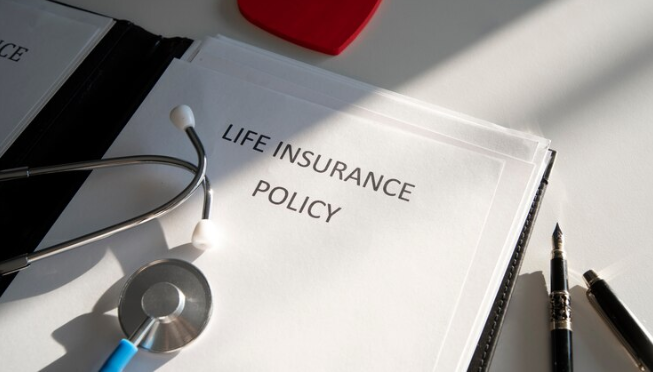Being self-employed comes with the freedom and flexibility of being your own boss, but it also brings the responsibility of managing your own insurance. Insurance is a crucial aspect of financial planning for self-employed individuals, providing protection against various risks and ensuring peace of mind. This guide will help you understand the types of insurance you need as a self-employed person, their benefits, and how to choose the right coverage.
Why Insurance is Important for the Self-Employed
Insurance is vital for self-employed individuals because it provides financial protection against unexpected events that could impact your income and livelihood. Without the safety net of employer-provided benefits, self-employed workers need to take proactive steps to safeguard their health, income, and business.
Types of Insurance for Self-Employed Individuals
There are several types of insurance that self-employed individuals should consider:
Health Insurance: Health insurance is essential for covering medical expenses, including doctor visits, hospital stays, and prescription medications. Without employer-sponsored health insurance, self-employed individuals need to purchase their own policies, either through the health insurance marketplace or private insurers.
Disability Insurance: Disability insurance provides income replacement if you become unable to work due to illness or injury. This is particularly important for self-employed individuals, as they do not have access to employer-provided disability benefits.
Liability Insurance: Liability insurance protects against claims of negligence, errors, or omissions in your professional services. For many self-employed professionals, this coverage is crucial for protecting against lawsuits and legal expenses.
Professional Liability Insurance: Also known as errors and omissions (E&O) insurance, this coverage is specifically designed for professionals who provide advice or services. It covers legal costs and damages if a client claims that your work caused them financial harm.
General Liability Insurance: This insurance covers claims of bodily injury or property damage caused by your business operations. It is essential for any self-employed individual who interacts with clients or the public.
Business Property Insurance: This insurance protects your business property, including equipment, inventory, and office space, from damage or loss due to events like fire, theft, or natural disasters.
Life Insurance: Life insurance provides financial protection for your family in the event of your death. It ensures that your dependents are taken care of and can cover expenses such as mortgage payments, education costs, and daily living expenses.
Health Savings Account (HSA): While not insurance per se, an HSA is a valuable tool for self-employed individuals to save for medical expenses. Contributions are tax-deductible, and funds can be used tax-free for qualified medical expenses.
Benefits of Insurance for Self-Employed Individuals
Insurance offers numerous benefits for self-employed individuals, making it a crucial part of financial planning:
Financial Protection: Insurance provides a financial safety net, protecting you from significant out-of-pocket expenses due to health issues, accidents, or lawsuits.
Peace of Mind: Knowing that you have insurance coverage allows you to focus on your work without worrying about potential financial setbacks.
Professional Credibility: Having liability insurance enhances your credibility with clients, showing that you are a responsible professional who is prepared for unforeseen circumstances.
Legal Compliance: In some professions, having liability insurance is a legal requirement. Ensuring you have the necessary coverage helps you comply with industry regulations.
Income Stability: Disability insurance and business interruption insurance help maintain your income if you are unable to work due to illness, injury, or other covered events.
How to Choose the Right Insurance Coverage
Selecting the right insurance coverage involves evaluating your needs, understanding the available options, and comparing different policies. Here are some steps to help you make an informed decision:
- Assess Your Risks: Identify the specific risks associated with your profession and personal circumstances. Consider factors such as your health, the nature of your work, and your financial obligations.
- Determine Coverage Needs: Based on your risk assessment, determine the types and amounts of coverage you need. For example, a self-employed contractor might need general liability and business property insurance, while a freelance writer might prioritize health and disability insurance.
- Compare Quotes: Obtain quotes from multiple insurance providers to compare costs and coverage options. Use online comparison tools or consult with an insurance broker to find the best deals.
- Review Policy Details: Carefully review the terms and conditions of each policy, including coverage limits, exclusions, and deductibles. Ensure you understand what is covered and what is not.
- Consider Bundling: Some insurance providers offer discounts for bundling multiple policies. If you need several types of coverage, bundling them with one insurer can save you money.
- Consult with a Professional: An insurance broker or financial advisor can provide valuable insights and help you navigate the complexities of insurance for self-employed individuals. They can assist in identifying the right coverage and finding the best policies for your needs.
Conclusion
Insurance is a critical component of financial planning for self-employed individuals, offering protection against various risks and ensuring peace of mind. By understanding the types of insurance available and carefully evaluating your needs, you can choose the right coverage to safeguard your health, income, and business. Investing in insurance is an investment in your future stability and security.
Call to Action
Ready to protect your self-employment journey with the right insurance coverage? Start comparing quotes today and find the best policies to secure your financial future.
FAQs
What types of insurance are essential for self-employed individuals? Essential insurance types for self-employed individuals include health insurance, disability insurance, liability insurance, business property insurance, and life insurance.
How can I find affordable health insurance as a self-employed individual? You can find affordable health insurance through the health insurance marketplace, private insurers, or professional associations that offer group plans. Comparing quotes and exploring available subsidies can also help reduce costs.
Do self-employed individuals need liability insurance? Yes, liability insurance is crucial for self-employed individuals, especially those who interact with clients or the public. It protects against claims of negligence, errors, or omissions in your professional services.
